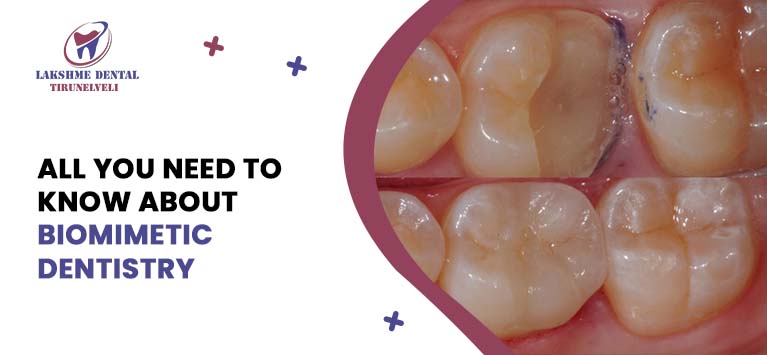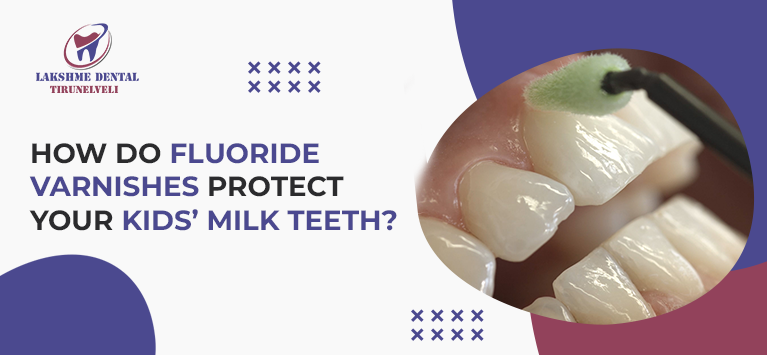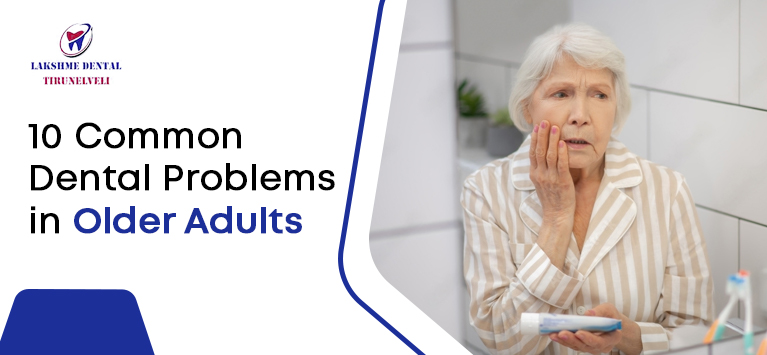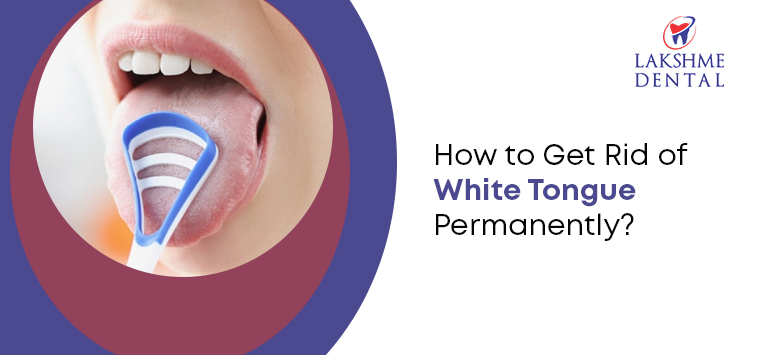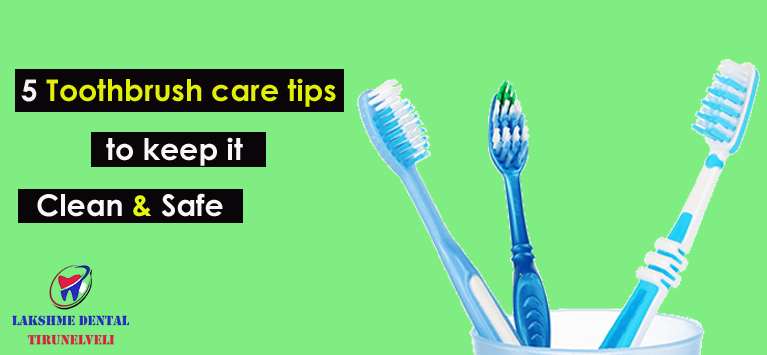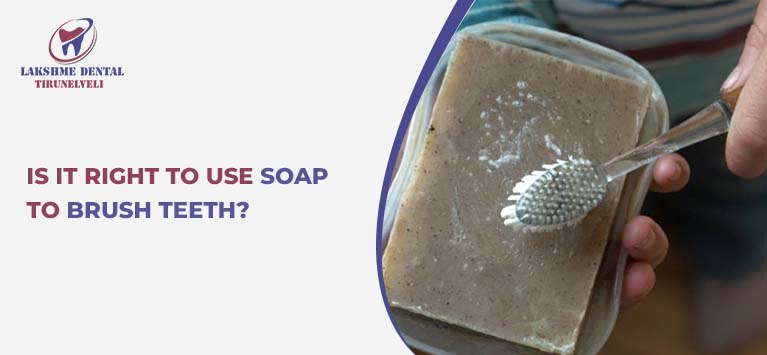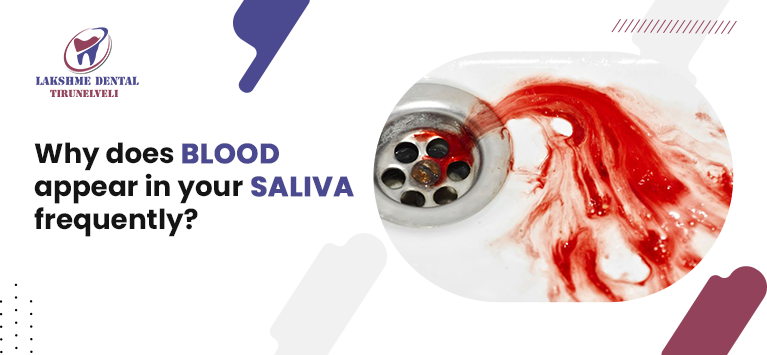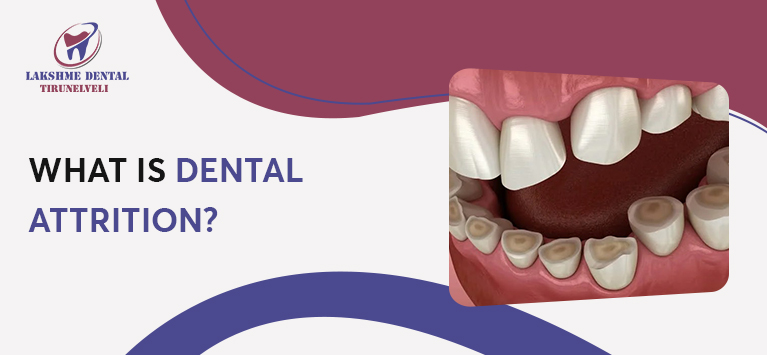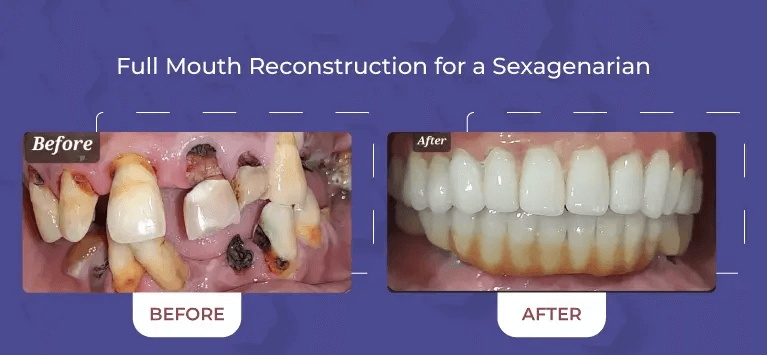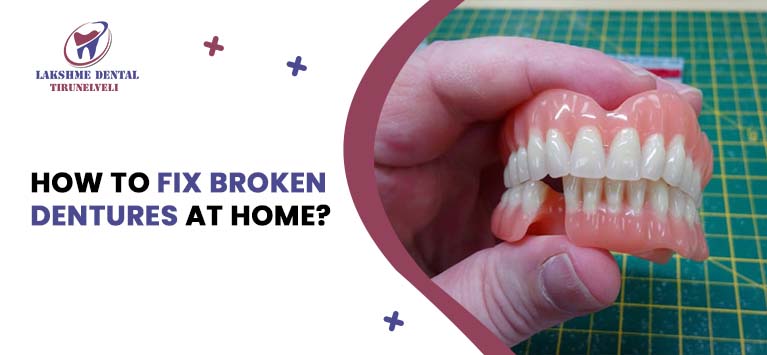
How to Fix Broken Dentures at Home?
Dentures, partial or complete, are designed to endure and are made from tough materials like acrylic and metal, ensuring longevity. But, mishaps can occur, and dental experts mention “material fatigue,” where materials weaken with frequent use. When your prosthetic unexpectedly breaks or tiny cracks appear, prompt fixing is necessary.
Keep reading to learn the most common causes of denture breakage, what to do if your denture breaks, and how to avoid damaging your false teeth in the first place.
What is a denture?
A denture is a type of removable artificial teeth set that replaces multiple missing teeth. Whenever all the teeth in either the upper (maxilla) or lower (mandible) jaw are absent and replaced, it is referred to as a “complete prosthesis.”
Besides facilitating chewing, which is crucial for proper digestion, dental replacements offer advantages in aesthetics, speech clarity, and support for the lips and cheeks.
The materials employed in crafting dentures vary. Some dentures are entirely made of resin, while others feature a metal structure for added strength, covered with resin to replicate the appearance of natural teeth and gums.
Why does a denture break?
Below are the primary reasons for denture issues, the usual culprits that lead to its breakdowns:
- Poor quality prosthesis care;
- Excessive chewing load on the prosthesis;
- Dropping the prosthesis on a hard surface;
- Destruction or loosening of the abutment tooth;
- The service life of the prosthesis has expired;
- Initial design defects or low-quality material;
- The technology of fixation of the prosthesis is broken.
When does a prosthesis need to be repaired?
Taking good care of your dentures is vital to make them last for about 5 to 10 years before you need to get new ones. Regularly visiting your dentist for dental checkups is also essential, as it can help identify and resolve any problems with your dentures early on. Doing so can prevent any severe damage to your dentures and ensure they stay in good shape for a long time.
What should you do if your prosthesis breaks? How to repair it at home?
If your denture has broken, don’t worry, there are ways to repair it at home. First, you should keep in mind that not all dentures are the same, so it is important to consult a dentist before attempting to fix it. The dentist can examine the harm and decide whether it is fixable or requires substitution.
If the dentist tells you that you can repair the denture, follow these steps to glue it correctly:
- Ensure you’ve got all the needed items before starting the denture repair. These include dental adhesive made for dentures, a small container to mix it, water, a toothpick, and a tissue.
- Clean the dentures and your mouth using a soft toothbrush and warm water. Make sure there are no food bits or old adhesive left.
- Follow the manufacturer’s instructions to mix the dental adhesive. Usually, a 1:1 ratio of adhesive and water is recommended.
- Apply a generous amount of glue to the cracked denture, spreading it evenly.
- Now, carefully place the broken denture where it was before and push it down firmly for a few seconds to stick it well. If too much glue is coming out, use the toothpick to remove it.
- Wait for the glue to dry completely as per the instructions from the manufacturer. Usually, it takes about a day (24 hours) before you can eat or drink again.
- To test the repair, gently bite down on a towel or paper. The repair succeeds if the denture stays in place and doesn’t move.
- However, if the denture still causes discomfort or doesn’t hold up well, it’s crucial to consult a dentist. Sometimes, home repairs are unsuitable for serious fractures or issues with the denture’s fit.
You can employ an at-home denture repair kit when there’s an urgent situation. It helps fix your broken denture quickly and temporarily without harming it more. However, Remember that this quick solution is only temporary, so you should communicate with your dentist and have your damaged denture professionally fixed at a dental lab.
Remember that it is essential to properly care for and maintain your dental prosthesis, both through good oral hygiene and by avoiding bad habits such as biting hard objects or using it as a tool. It is always better to prevent breakage or damage to the dental prosthesis, avoiding situations that could compromise its integrity.
How to avoid the breakage of prostheses?
As mentioned, your prostheses’ longevity is tested over time and daily use. To steer clear of problems, it’s vital to properly look after your dentures and follow a regular oral care routine. Here’s what you can do to prevent denture breakage effectively:
- Clean and brush your dentures regularly while holding them over a sink filled with water or using a hand towel to cushion any accidental drops.
- After removing your dentures, make sure to rinse them thoroughly to get rid of any leftover debris.
- Let your dentures soak in a glass of denture cleaning solution overnight for optimum care.
In Conclusion
Taking care of your dentures is crucial to ensure they last long and remain in good condition. While there are DIY solutions for minor issues, relying on a dentist ensures a thorough assessment of the damage and appropriate repair methods. Attempting complex repairs at home may lead to further damage or discomfort. Dental professionals have the knowledge, experience, and specialized tools to handle denture problems effectively. Regular dental checkups also play a vital role in preventing major issues and ensuring the longevity of your dentures. Embrace the advice and support of professionals to enjoy a reliable and well-maintained denture experience for years to come.

